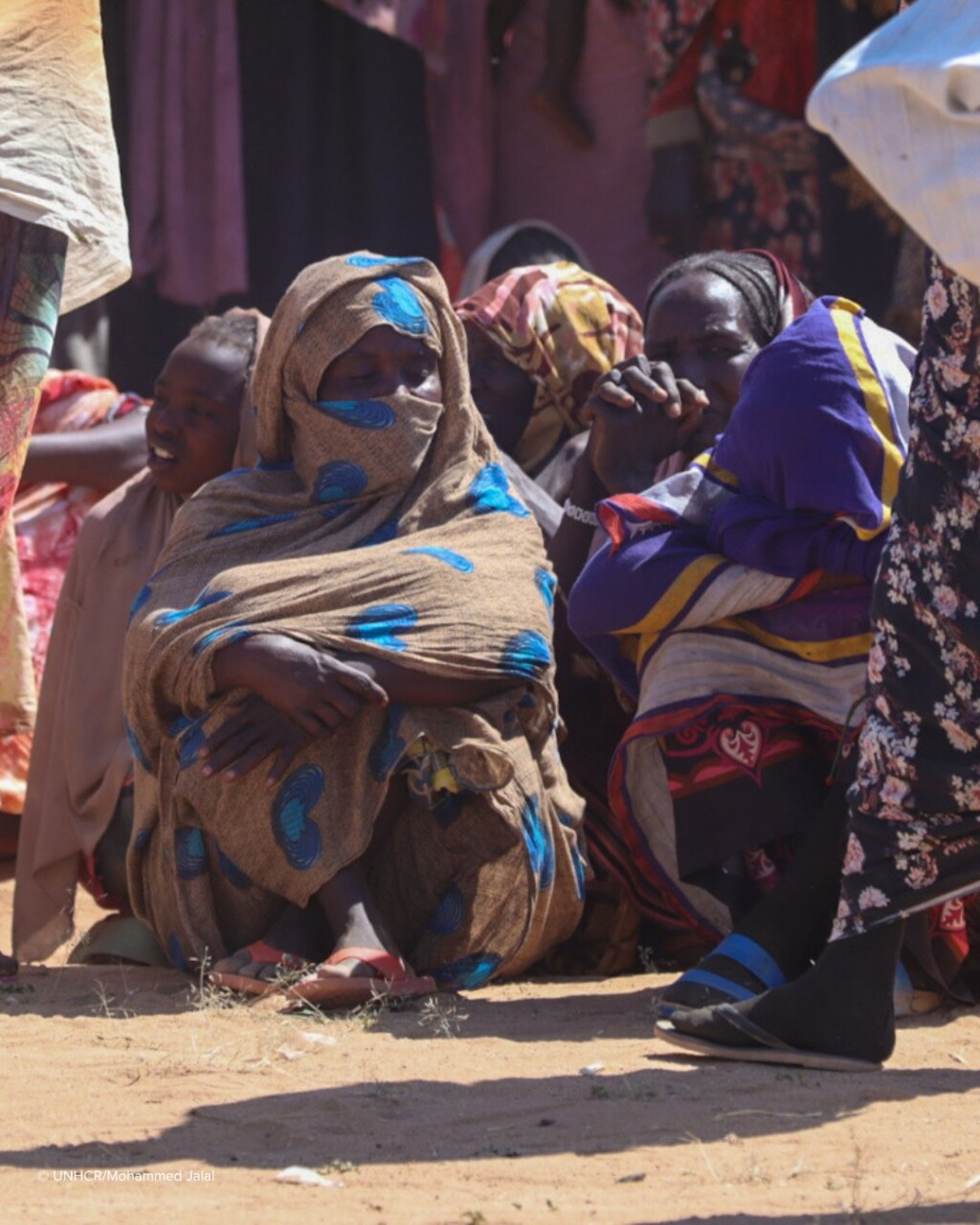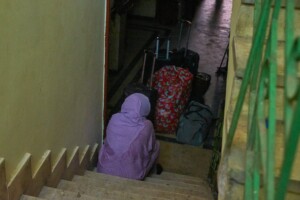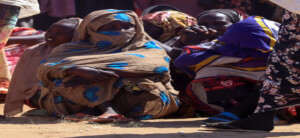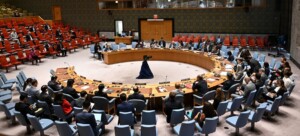Survivors of North Kordofan RSF raid: ‘Women’s bodies became a battlefield’

Women who fled from El Fasher to Tawila in North Darfur (File photo: UNHCR)
‘We received no warning… and we didn’t understand what was happening...’
At 07:00, we were home. The army hadn’t told us they were withdrawing, and we hadn’t received any warning. Suddenly, Rapid Support Forces (RSF) personnel began storming houses. They were strangers, unlike the locals, even though they spoke Arabic. They stole anything they could get their hands on, and they cursed us with words I can’t even repeat. They insulted us, threatened us, beat us, and used racist language that degraded us.
This story is one of a series of testimonies documented by the Strategic Initiative for Women in the Horn of Africa (SIHA), as part of its investigation into what happened in Barah, a town in North Kordofan, some 30 kilometres north of the state capital of El Obeid, between October 24 and 25, when the RSF took control of the town following the army’s sudden withdrawal without notifying the residents.
One survivor, describing the raid carried out by the RSF on October 24, added that soldiers separated the women and children from the men, detaining each group in a different location, as a first step in initiating a wave of attacks.
The network reports that most of the attacks occurred inside the homes themselves, after the women were separated from their families and threatened with weapons.
‘They were selecting women and girls’
Another eyewitness told SIHA that RSF members were “selecting” specific girls: “They would enter houses, call out to the women, and then take some girls away from their families to other houses. There, they would rape them.”
Miraculous survival: The story of a mother and her child
One of the most harrowing testimonies came from a woman who miraculously survived an attempted rape on October 25. She was fleeing with her mother and child when they were stopped by a group of soldiers: “They told me to leave my child with my mother and come along. I obeyed because I was scared. They took me to a valley, spread out a mattress, and told me to sit down and take off my clothes. My child was crying… They went to my mother and told her to quiet him. I told them he needed to be breastfed.”
The woman recounts, “At that moment, a member of the RSF arrived and asked why I was there. I told him they had brought me back. He told me to go breastfeed my baby and not to return.
But the tragedy didn’t end there. After a short while, they found us, and this time they took me to an empty house and separated me from my mother and child.” She adds, “I sat there until that same man came again. He asked me why I was there again, and I told him they had found me and brought me back. He directed me to an unidentified homeowner and said he couldn’t help me any further.”
The woman managed to escape with her friend at three in the morning, before reaching the city of El Obeid, where she was reunited with her mother and child.
Underage victims… and gang rape in homes
SIHA says that among the forty cases it documented, a 15-year-old girl and a 17-year-old girl who was working as a volunteer confirm that a number of women were gang-raped at gunpoint after their relatives were detained in adjacent rooms. Survivors also reported having their belongings looted, being insulted, and being subjected to racial humiliation.
Unprotected rural areas
The network believes that the rural nature of Bara and its surroundings, coupled with a lack of protection and communication disruptions, left women and girls directly exposed to the worst forms of conflict-related sexual violence. It states that what happened reflects “the ongoing war on women and girls in Sudan”.
It notes that all 40 victims were moved to safer areas and received medical care and psychological support.
SIHA asserts that sexual violence in Bara cannot be viewed as an emergency act or a war accident, but rather as a systematic behaviour that has become part of the theatre of operations in Sudan, by which the RSF target women and girls to subdue and control rural communities.
Calls for international protection and documentation
The Sudanese Journalists Syndicate (SIHA) called on the international community to provide urgent support to women, children, and displaced persons, and to strengthen protection, mental health, and reproductive health services. It also called on regional and international mechanisms, including the African Union and United Nations fact-finding missions, to allocate specific resources to document violations in Bara and other areas of North Kordofan.
The statement concludes, “The people of North Kordofan are facing horrors that no community should have to endure. The silence and indifference of regional and international bodies only increases the victims’ sense of isolation and gives the perpetrators space to continue their crimes with impunity.”
Conflict related sexual violence
The Strategic Initiative for Women in the Horn of Africa (SIHA) has documented 40 cases of conflict-related sexual violence in Bara, North Kordofan State, including 10 cases that have been verified so far. These include two minors, aged 15 and 17.
The network said in a press statement, which was seen by Radio Dabanga on Friday, that the victims were subjected to individual and group rape under threat of weapons inside their homes by members of the Rapid Support Forces, after separating and threatening their family members.
They explained that the Rapid Support Forces seized control of Bara between October 24 and 25, 2025, following the sudden withdrawal of the armed forces, and during this time committed a series of violations including murder, physical assault, abduction, and looting. They noted that all forty victims were subsequently transferred to safe locations and received medical care and psychosocial support.
The network condemned the actions of the Rapid Support Forces, deeming them “war crimes and crimes against humanity,” and called on the international community to provide urgent protection and support for women, children, and displaced persons, urging the African











 and then
and then